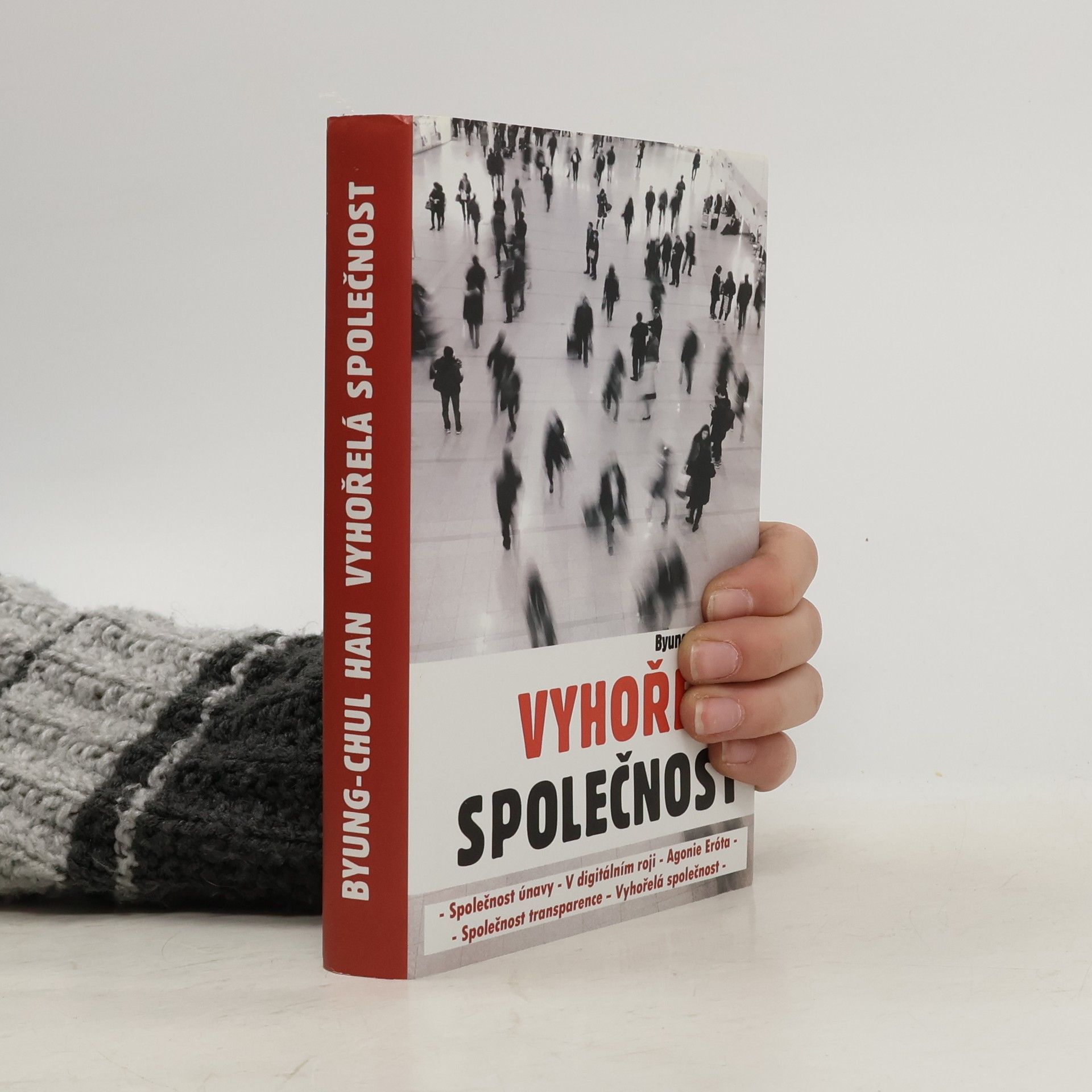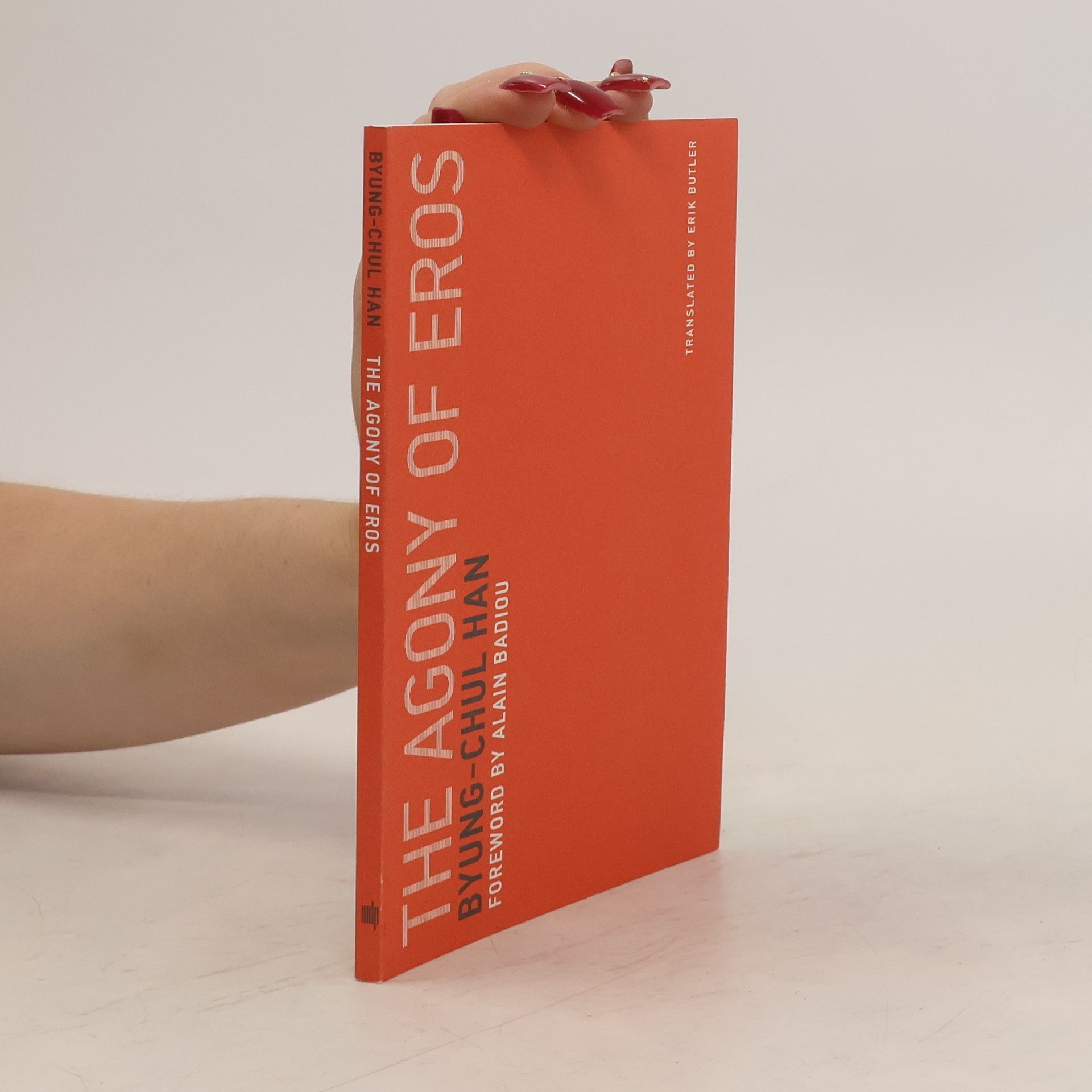Byung-Chul Han, německy píšící filozof korejského původu, přináší pronikavou analýzu současné doby. Uvádí, že dnešní charakteristické choroby, jako jsou deprese, porucha pozornosti, hraniční porucha osobnosti a syndrom vyhoření, nejsou náhodné, ale odrážejí zásadní proměny západních společností od konce studené války. Minulé století, které Han nazývá imunologickým, bylo poznamenáno jasným rozdělením mezi vnitřkem a vnějškem, přičemž lidé se mobilizovali proti vnějším hrozbám. Dnešní globalizovaný svět, založený na neustálém sdílení a informační přesycenosti, vede k vymizení jinakosti a plodné negativity, což paradoxně posiluje teror pozitivity. Tato situace způsobuje, že psychické problémy nejsou výsledkem překážek, ale tlaku na seberealizaci a maximální výkon. Subjekt výkonnosti, který je sám sobě pánem, se ocitá v pasti nutkavé svobody, což vede k vykořisťování sebe sama. Han analyzuje jevy, které tradiční psychologie nedokáže vysvětlit. V našem vydání najdete pět esejů, které se zabývají vyčerpaností z přemíry pozitivity, tlakem na transparentnost, civilizačním regressem spojeným s digitální kulturou a vymizením erotického prožitku v narcistickém světě.
Byung-Chul Han Knihy
Byung-Chul Han je současný myslitel, který se zabývá hlubokými problémy naší doby. Ve své práci zkoumá, jak moderní společnost, poháněná neoliberálními silami, vytváří normy transparency a neustálého odhalování. Han se kriticky zamýšlí nad důsledky této "společnosti únavy" a "společnosti transparency", kde se ztrácejí hodnoty jako stud a soukromí. Jeho eseje nabízejí pronikavý pohled na to, jak digitalizace a kapitalismus formují naši subjektivitu a mezilidské vztahy.







The tsunami of information unleashed by digitization is threatening to overwhelm us, drowning us in a sea of frenzied communication and disrupting many spheres of social life, including politics. Election campaigns are now being waged as information wars with bots and troll armies, and democracy is degenerating into infocracy. In this new book, Byung-Chul Han argues that infocracy is the new form of rule characteristic of contemporary information capitalism. Whereas the disciplinary regime of industrial capitalism worked with compulsion and repression, this new information regime exploits freedom instead of repressing it. Surveillance and punishment give way to motivation and optimization: we imagine that we are free, but in reality our entire lives are recorded so that our behaviour might be psychopolitically controlled. Under the neoliberal information regime, mechanisms of power function not because people are aware of the fact of constant surveillance but because they perceive themselves to be free. This trenchant critique of politics in the information age will be of great interest to students and scholars in the humanities and social sciences and to anyone concerned about the fate of politics in our time.
The book explores the overwhelming impact of digital information on society, particularly how it affects political landscapes. It delves into the transformation of election campaigns into battles of information, highlighting the roles of bots and troll armies. This shift is leading to a decline in democratic processes, which the author terms "infocracy," where the quality of information supersedes the democratic ideals it was meant to uphold.
The Disappearance of Rituals
- 186 stránek
- 7 hodin čtení
A sharp critique of our contemporary societies in which pseudo-communication and narcissism have replaced community--
Topology of violence
- 168 stránek
- 6 hodin čtení
Our societies today are characterized by a universal algophobia: a generalized fear of pain. We strive to avoid all painful conditions – even the pain of love is treated as suspect. This algophobia extends into society: less and less space is given to conflicts and controversies that might prompt painful discussions. It takes hold of politics too: politics becomes a palliative politics that is incapable of implementing radical reforms that might be painful, so all we get is more of the same. Faced with the coronavirus pandemic, the palliative society is transformed into a society of survival. The virus enters the palliative zone of well-being and turns it into a quarantine zone in which life is increasingly focused on survival. And the more life becomes survival, the greater the fear of death, which has become increasingly visible again. Everywhere, the prolongation of life at any cost is the preeminent value, and we are prepared to sacrifice everything that makes life worth living for the sake of survival. This trenchant analysis of our contemporary societies by one of the most original cultural critics of our time will be of interest to a wide readership.
Absence: On the Culture and Philosophy of the Far East
- 128 stránek
- 5 hodin čtení
Western thinking has long been dominated by essence, by a preoccupation with that which dwells in itself and delimits itself from the other. By contrast, Far Eastern thought is centred not on essence but on absence. The fundamental topos of Far Eastern thinking is not being but ‘the way’ (dao), which lacks the solidity and fixedness of essence. The difference between essence and absence is the difference between being and path, between dwelling and wandering. ‘A Zen monk should be without fixed abode, like the clouds, and without fixed support, like water’, said the Japanese Zen master Dōgen. Drawing on this fundamental distinction between essence and absence, Byung-Chul Han explores the differences between Western and Far Eastern philosophy, aesthetics, architecture and art, shedding fresh light on a culture of absence that may at first sight appear strange and unfamiliar to those in the West whose ways of thinking have been shaped for centuries by the preoccupation with essence.
The Expulsion of the Other
- 100 stránek
- 4 hodiny čtení
The days of the Other are over in this age of excessive communication, information and consumption. What used to be the Other, be it as friend, as Eros or as hell, is now indistinguishable from the self in our narcissistic desire to assimilate everything and everyone until there are no boundaries left.
The agony of eros
- 88 stránek
- 4 hodiny čtení
Byung-Chul Han, a prominent European philosopher, explores the contemporary threats to love and desire in this bestselling work. He argues that true love requires the courage to embrace self-negation to discover the Other, a concept increasingly endangered by today's fetishized individualism and technology-driven social interactions. In a narcissistic society, love and desire are often sought within the confines of the self. Han examines various cultural references, including Lars von Trier's *Melancholia*, Wagner's *Tristan und Isolde*, and *Fifty Shades of Grey*, while critiquing Michel Foucault's views on power. He addresses the pornographication of society, arguing that it profanes Eros, and discusses how capitalism erases essential differences. Furthermore, he reflects on the politics of Eros in a burnout society, asserting that a lack of love equates to a lack of thought. This concise yet profound essay contributes significantly to Han's critique of modern society, offering a compelling intellectual experience. It invites readers to engage in the vital struggle for love's reinvention, echoing Rimbaud's desire for a renewed understanding of love.
The transparency society
- 70 stránek
- 3 hodiny čtení
Transparency is the order of the day. It is a term, a slogan, that dominates public discourse about corruption and freedom of information. Considered crucial to democracy, it touches our political and economic lives as well as our private lives. Anyone can obtain information about anything. Everything—and everyone—has become transparent: unveiled or exposed by the apparatuses that exert a kind of collective control over the post-capitalist world. Yet, transparency has a dark side that, ironically, has everything to do with a lack of mystery, shadow, and nuance. Behind the apparent accessibility of knowledge lies the disappearance of privacy, homogenization, and the collapse of trust. The anxiety to accumulate ever more information does not necessarily produce more knowledge or faith. Technology creates the illusion of total containment and the constant monitoring of information, but what we lack is adequate interpretation of the information. In this manifesto, Byung-Chul Han denounces transparency as a false ideal, the strongest and most pernicious of our contemporary mythologies.

